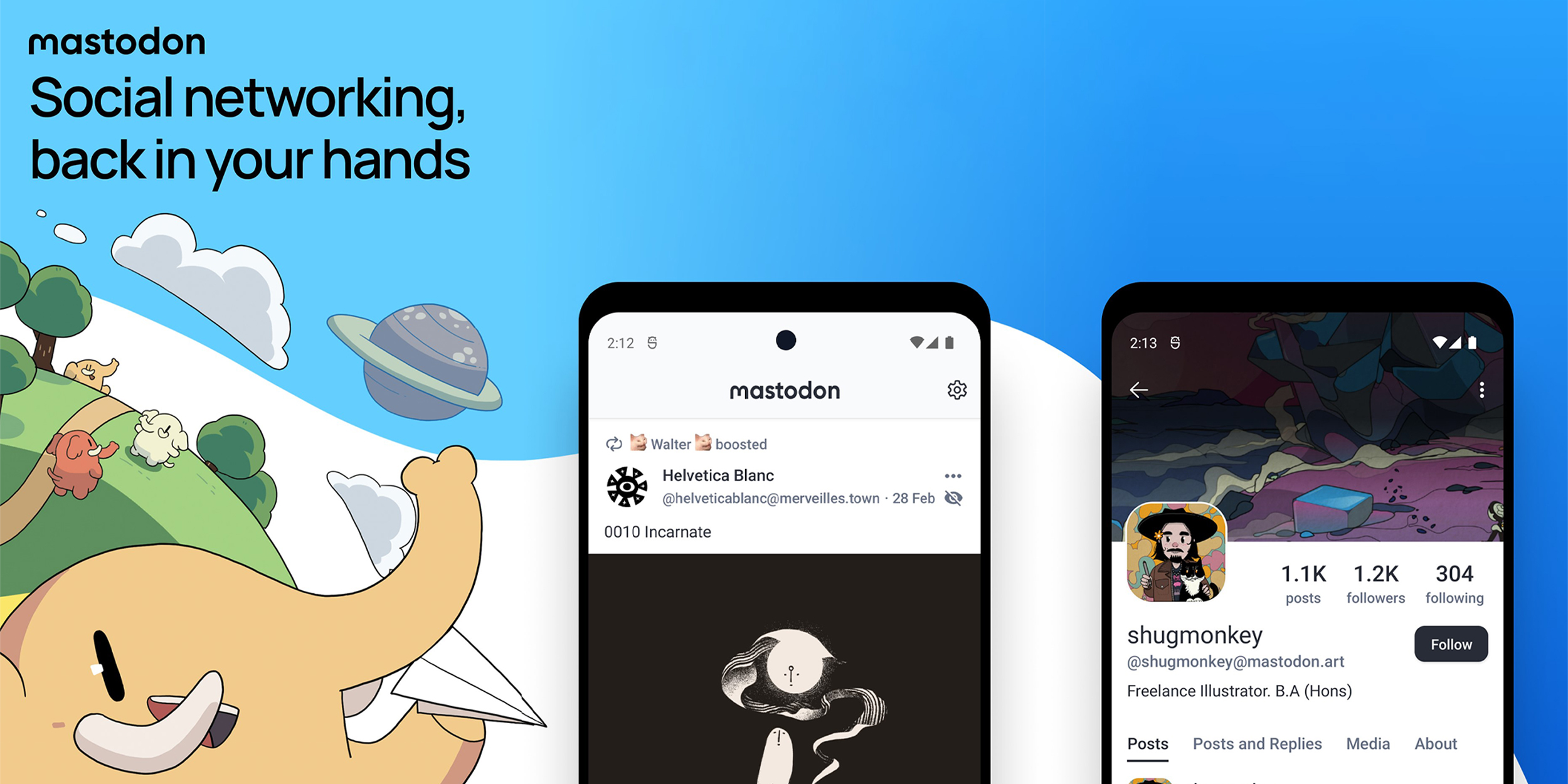What is Mastodon and why are Twitter users signing up in their thousands?
The open-source Twitter alternative can thank Elon Musk for its sudden popularity


Elon Musk has managed to drive thousands of people somewhere incredibly quickly, but he isn't doing it in Teslas: he's doing it on Twitter, where there appears to be a mass exodus to Mastodon. Not to be confused with the US heavy metal band of the same name, Mastodon is an open-source social network that isn't planning to charge anybody $8 a month or ban them from criticising its founder.
Mastodon has been around since 2016, but Elon Musk's erratic stewardship of Twitter has seen its user numbers skyrocket in 2022. It had around 1 million users at the end of 2017 and continued to grow slowly, but this month it gained over 70,000 new users in a single day after Musk announced that he was Twitter's new CEO and the exodus has continued every day since.
So what is Mastodon, how do you sign up and is it worth it? Here's what you need to know.
What is Mastodon?
Mastodon is a distributed social network. That "distributed" bit is the important bit, because it means anybody can set up their own Mastodon "instance" – their own server. For example there's Mastodon.social, one of the most popular instances; there's Mastodon.scot, for people in or interested in Scotland, Kpop.social for fans of Korean pop music... you get the idea.
While these different instances are separate, they're all Mastodon – and that means you can follow and talk to people on those instances without having to be signed up to the same one. So for example I'm on the .social one but most of the people I follow are on completely different instances. It doesn't affect our ability to communicate.
What it does do, though, is enable the server's owner to set their own rules. All the key servers ban hate speech and abuse, but even stricter rules can be set on a per-server basis; if you don't like them, simply sign up for a different server. Interestingly, this means that servers could simply block other servers – so if someone set up a server, say, for neo-nazis, other Mastodon servers could prevent users from that server posting to theirs. That could potentially prevent Mastodon from becoming the cesspit that Twitter has become for many marginalised groups.
How do I sign up for Mastodon?
There are lots of mobile and desktop apps but the best first step is to sign up on the web. To do that, go to joinmastodon.org where you'll find a list of servers that have signed up to the Server Covenant, the basic anti-hate rules. Simply pick the server that looks like the best fit for you – whether that's K-Pop or PHP, general chat or for people from specific regions – and sign up. It's free.
Get all the latest news, reviews, deals and buying guides on gorgeous tech, home and active products from the T3 experts
Your username will be @yourname@yourserver.name, so for example my account is @elonmusk@mastodon.social. Well, almost.
That's all anybody needs to find you on the network. If you wish you can choose to approve followers so that nobody can follow you without your permission. And unlike Twitter, people can't stumble across your conversations – so if you're talking about Game Of Thrones and don't use a hashtag, such as #gameofthrones, strangers can't wander in and start yelling at you.
Is Mastodon any good?
It's got a lot of potential. It's a lot geekier than, say, Twitter – it takes more effort to get up and running and the interface is a bit unclear – but it could deliver a much safer space than many people currently find Twitter to be. And if serious numbers of people continue moving from Twitter to Mastodon, app developers will follow the money and create their own apps to make things better and more user-friendly.
It's definitely worth signing up now, not least in order to get a decent name on your preferred server. Whether it'll replace Twitter is largely up to Elon Musk: Twitter may be huge now, but so were Yahoo! Groups, MySpace and AOL. If the people we want to read or talk to move to Mastodon or an as-yet-unreleased network, Twitter could easily join them in the tech cemetery.
Writer, musician and broadcaster Carrie Marshall has been covering technology since 1998 and is particularly interested in how tech can help us live our best lives. Her CV is a who’s who of magazines, newspapers, websites and radio programmes ranging from T3, Techradar and MacFormat to the BBC, Sunday Post and People’s Friend. Carrie has written more than a dozen books, ghost-wrote two more and co-wrote seven more books and a Radio 2 documentary series; her memoir, Carrie Kills A Man, was shortlisted for the British Book Awards. When she’s not scribbling, Carrie is the singer in Glaswegian rock band Unquiet Mind (unquietmindmusic).
